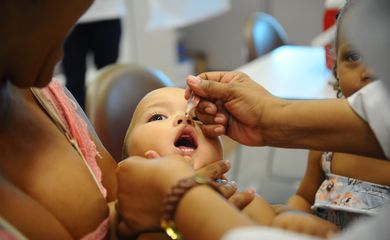Coverage of eight vaccines for infants up in 2023

In 2023, Brazil increased the coverage of eight vaccines recommended for one-year-old children, a report released on Tuesday (Dec. 19) by the Ministry of Health indicates.

The jabs that saw a rise in the number of doses are those against hepatitis A, polio, and pneumococcal disease, the meningococcal vaccine, DTP (diphtheria, tetanus, and pertussis), and MMR (measles, mumps, and rubella), as well as the vaccine against yellow fever, recommended at nine months of age. Figures refer to the shots administered from January to October this year compared to the same period in 2022.
The only inoculation recommended for this age group that did not see a surge in demand was chickenpox. The decline, said National Immunization Program Director Eder Gatti, was due to a safety problem at the world’s largest supplier, which cut distribution short in the second half of 2023. “It was not possible to find a substitute on the market for this temporary interruption,” he stated.
Vaccination in schools
Brazil’s Health Minister Nísia Trindade said the results show the beginning of a reversal in the downward trend in coverage countrywide, which has been going on since 2016.
In February, the government launched the National Vaccination Movement, to resume immunization and tackle fake news about the subject.
She attributed the improvement to regional initiatives, including the allocation of BRL 151 million to states and municipalities, in addition to school efforts. In 2023, 3,992 cities adopted the immunization of children and adolescents in schools.
Strategies also included extending the opening hours of immunization rooms, actively seeking out unvaccinated people, and standardizing records.
“Despite denialism, the government will not give up the defense of life and the defense of vaccination,” the minister pledged, adding that vaccines and treated water are the most effective measures to reduce infant mortality and raise life expectancy.
According to the ministry’s balance sheet, the number of municipalities that have reached 95 percent of the child immunization target has risen by a third.






